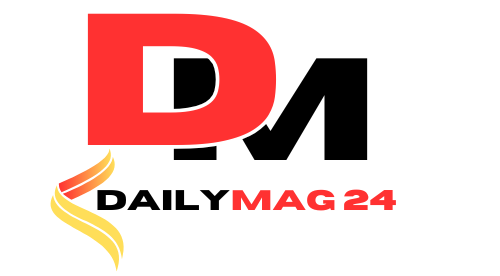Introduction to Buying Your First Home
Homeownership brings a sense of pride and accomplishment. It’s a place where you can create memories, design your space to reflect your personality, and establish roots. However, the excitement often comes with a mix of anxiety, particularly for first-time buyers unfamiliar with the real estate market. The journey to buying your first home is both exciting and overwhelming. For many, it’s a significant milestone representing stability, investment, and the dream of personal space. But the path to homeownership involves numerous steps and critical decisions that can impact your financial future. Understanding the intricacies of buying your first home will equip you with the knowledge to navigate the process confidently.
Why Buying a Home is a Big Decision
Purchasing a home is likely the largest financial commitment you’ll ever make. It’s essential to approach this decision with a clear understanding of your financial situation, the real estate market, and the responsibilities of homeownership. From selecting the right property to securing a mortgage, every step requires careful consideration and planning.
Understanding Your Financial Situation
Before diving into the home-buying process, it’s crucial to evaluate your financial health. This involves assessing your budget, understanding your credit score, and exploring your mortgage options.
Assessing Your Budget
Determining how much you can afford is the first step in buying a home. Review your monthly income, expenses, and savings. Consider using online calculators to estimate your potential mortgage payments and ensure you have enough for a down payment and closing costs.
Understanding Credit Scores and Mortgages
Your credit score plays a vital role in securing a mortgage. Lenders use this score to assess your reliability as a borrower. A higher credit score can qualify you for better interest rates, saving you thousands over the life of your loan. Understanding different types of mortgages, such as fixed-rate and adjustable-rate mortgages, will help you choose the best option for your financial situation.
First Home Budgeting Tips
Budgeting is a fundamental aspect of buying a home. It ensures you’re financially prepared for both the upfront and ongoing costs of homeownership.
Saving for a Down Payment
One of the most significant financial hurdles for first-time homebuyers is saving for a down payment. Traditionally, this is 20% of the home’s purchase price, but many programs allow for lower down payments. Start by setting a savings goal and explore high-yield savings accounts to maximize your efforts.
Estimating Monthly Expenses
In addition to the mortgage payment, homeownership comes with other monthly expenses such as property taxes, homeowners insurance, and maintenance costs. It’s essential to factor these into your budget to avoid any financial strain.
Exploring Mortgage Options
Understanding the various mortgage options available will help you make an informed decision.
Fixed vs. Variable Rates
Fixed-rate mortgages offer stable monthly payments and are ideal for those planning to stay in their home long-term. Variable or adjustable-rate mortgages may start with lower payments but can fluctuate over time, making them suitable for buyers who may sell or refinance in the near future.
Pre-Approval Process
Getting pre-approved for a mortgage provides a clear picture of how much you can borrow and shows sellers that you are a serious buyer. It involves a thorough review of your financial situation by a lender and can expedite the home-buying process.
First Homebuyer Programs and Incentives
Several programs and incentives can make buying your first home more affordable.
Government Assistance Programs
Many governments offer assistance programs for first-time homebuyers, including low-interest loans, down payment assistance, and tax credits. Research these programs to see if you qualify and how they can benefit you.
First-Time Buyer Grants
Grants specifically designed for first-time buyers can provide financial assistance without the need for repayment. These grants are often available at local, state, and federal levels.
Finding the Perfect Location
Choosing the right location is crucial for your long-term satisfaction and investment.
Urban vs. Suburban Living
Decide whether you prefer the hustle and bustle of urban living or the tranquility of the suburbs. Consider factors such as commute times, access to amenities, and the lifestyle you envision.
Researching Neighborhoods
Take the time to research potential neighborhoods. Look into crime rates, school districts, and future development plans. Visit at different times of day to get a feel for the area and talk to residents about their experiences.
House Hunting Tips
House hunting can be both exhilarating and exhausting. Knowing what to look for will streamline the process.
What to Look for in a Home
Create a list of must-haves and nice-to-haves in a home. Consider factors like the number of bedrooms, layout, and yard size. Keep an eye out for potential red flags such as structural issues or outdated systems.
Open Houses and Private Showings
Attend open houses and schedule private showings to get a closer look at properties that interest you. Take notes, photos, and ask questions to compare each home effectively.
Making an Offer
Once you find the perfect home, making a competitive offer is the next step.
How to Negotiate the Best Price
Work with your real estate agent to determine a fair offer based on market conditions and comparable sales. Be prepared to negotiate with the seller to reach an agreement that benefits both parties.
Understanding Offer Conditions
Include conditions in your offer to protect yourself, such as a home inspection contingency or financing contingency. These conditions give you the right to back out of the deal if certain criteria aren’t met.
Home Inspections
A thorough home inspection is crucial to identify any potential issues with the property.
Importance of Professional Inspections
Hire a licensed home inspector to conduct a detailed inspection of the home. They will assess the condition of the structure, systems, and components, providing you with a report on any necessary repairs or concerns.
Common Issues to Watch For
Be aware of common issues such as foundation problems, roof damage, and outdated electrical systems. Use the inspection report to negotiate repairs or a price reduction with the seller.
Closing the Deal
The closing process finalizes your home purchase, and understanding it will help you avoid surprises.
What to Expect at Closing
Closing involves signing various documents, transferring funds, and officially taking ownership of the home. Your real estate agent and lender will guide you through this process, ensuring all paperwork is in order.
Closing Costs Breakdown
Be prepared for closing costs, which can include loan origination fees, title insurance, and attorney fees. These costs typically range from 2% to 5% of the home’s purchase price.
First Home Essentials
Moving into your first home requires some essential purchases and setups.
Must-Have Items for New Homeowners
Start with the basics such as furniture, kitchen essentials, and cleaning supplies. Over time, you can invest in additional items to personalize your space.
Setting Up Utilities and Services
Ensure your utilities are set up before moving in, including electricity, water, gas, and internet. Contact service providers in advance to schedule installations and transfers.
Home Maintenance Tips
Maintaining your home is crucial for preserving its value and ensuring a comfortable living environment.
Seasonal Maintenance Checklist
Create a seasonal maintenance checklist to keep your home in top condition. This can include tasks like changing air filters, cleaning gutters, and inspecting the roof.
DIY vs. Professional Help
While many maintenance tasks can be done yourself, don’t hesitate to hire professionals for more complex or hazardous jobs. This ensures the work is done correctly and safely.
Moving InThe moving process can be stressful, but with proper planning, it can go smoothly.
Hiring Movers vs. DIY Move
Decide whether to hire professional movers or handle the move yourself. Professional movers can save time and effort, while a DIY move can be more cost-effective.
Moving Day Tips
Prepare for moving day by packing an essentials box with items you’ll need immediately, labeling boxes clearly, and coordinating with movers or helpers to ensure a smooth transition.
Interior Design Tips for Your First Home
Decorating your first home can be fun and rewarding.
Budget-Friendly Decor Ideas
You don’t need to break the bank to decorate your new home. Look for budget-friendly options such as thrift store finds, DIY projects, and simple upgrades like new paint or light fixtures.
Maximizing Small Spaces
If your first home is on the smaller side, use smart design techniques to maximize space. This includes multifunctional furniture, creative storage solutions, and utilizing vertical space.
Creating a Comfortable Living Space
A comfortable living space enhances your overall home experience.
Furniture Essentials
Invest in quality furniture pieces that fit your space and style. Start with key items like a comfortable sofa, a dining table, and a good mattress.
Personalized Touches
Add personal touches to make your home truly yours. This can include family photos, artwork, and items that reflect your hobbies and interests.
Safety and Security
Ensuring your home is safe and secure is a top priority.
Home Security Systems
Consider installing a home security system to protect against intruders. Modern systems offer features like surveillance cameras, motion detectors, and remote monitoring.
Fire and Carbon Monoxide Detectors
Install and regularly test fire and carbon monoxide detectors. These devices are essential for keeping your home and family safe from potential hazards.
Sustainable Living
Adopting sustainable practices can save money and reduce your environmental impact.
Energy-Efficient Upgrades
Consider energy-efficient upgrades such as LED lighting, smart thermostats, and energy-star appliances. These can lower your utility bills and contribute to a greener home.
Eco-Friendly Practices
Incorporate eco-friendly practices into your daily routine, such as recycling, composting, and using environmentally friendly cleaning products.
Understanding Homeowners Insurance
Homeowners insurance protects your investment and provides peace of mind.
Types of Coverage
Familiarize yourself with the different types of coverage available, including dwelling, personal property, and liability coverage. This ensures you have comprehensive protection for your home and belongings.
How to Choose the Right Policy
Compare insurance policies from various providers to find the best coverage at a competitive price. Consider factors like coverage limits, deductibles, and customer reviews.
Building Equity in Your First Home
Building equity is one of the significant financial benefits of homeownership.
Importance of Mortgage Payments
Regular mortgage payments reduce your loan balance and increase your equity. Over time, as your home’s value appreciates, your equity grows.
Home Improvements That Add Value
Invest in home improvements that enhance your property’s value, such as kitchen upgrades, bathroom renovations, and landscaping. These improvements can provide a significant return on investment.
Tax Benefits of Homeownership
Homeownership offers several tax advantages that can reduce your overall tax burden.
Mortgage Interest Deduction
The mortgage interest deduction allows you to deduct the interest paid on your mortgage from your taxable income, potentially saving you thousands each year.
Property Tax Deductions
You can also deduct property taxes paid on your home, further reducing your taxable income and increasing your tax savings.
Legal Considerations
Understanding the legal aspects of homeownership ensures you avoid potential pitfalls.
Understanding Property Deeds
A property deed is a legal document that transfers ownership from the seller to the buyer. Ensure the deed is properly recorded and that you understand its terms.
Zoning Laws and Regulations
Familiarize yourself with local zoning laws and regulations, which dictate how you can use your property. This is particularly important if you plan to make significant changes or additions to your home.
Common First-Time Homebuyer Mistakes
Avoiding common mistakes will make your home-buying experience smoother.
Avoiding Overbuying
It’s easy to get carried away and purchase a home that stretches your budget. Stick to your financial plan and avoid overextending yourself financially.
Not Budgeting for Maintenance
Many first-time buyers overlook the ongoing costs of home maintenance. Set aside funds for regular upkeep and unexpected repairs to prevent financial strain.
Building Community Connections
Building connections in your new community enhances your living experience.
Getting to Know Your Neighbors
Introduce yourself to your neighbors and participate in community events. Building relationships can provide support and create a sense of belonging.
Participating in Local Events
Engage in local events and activities to immerse yourself in the community. This can help you stay informed and connected with your new surroundings.
Planning for the Future
Consider your long-term goals and how your home fits into them.
Long-Term Homeownership Goals
Think about your long-term goals for your home, such as raising a family, hosting gatherings, or making future improvements. This will guide your decisions and investments.
Considering Future Upgrades
Plan for future upgrades that can enhance your home’s value and functionality. This can include additions, renovations, or sustainable improvements.
Conclusion
Buying your first home is a significant milestone that requires careful planning and informed decision-making. By understanding your financial situation, exploring mortgage options, and knowing what to look for in a home, you can navigate the process with confidence. With the right knowledge and preparation, you’ll be well on your way to enjoying the many benefits of homeownership.
FAQs
How much should I save for a down payment?
Saving for a down payment typically involves setting aside 20% of the home’s purchase price, although many programs offer lower down payment options.
What is the best type of mortgage for a first-time homebuyer?
The best mortgage depends on your financial situation. Fixed-rate mortgages offer stability, while variable-rate mortgages may have lower initial payments.
How do I know if I am ready to buy a home?
You’re ready to buy a home if you have a stable income, good credit, and enough savings for a down payment and closing costs.
What are the benefits of buying a home over renting?
Homeownership builds equity, offers tax benefits, and provides stability, while renting may have lower upfront costs and more flexibility.
How do I find a good real estate agent?
Research agents, read reviews, and ask for recommendations from friends and family. Choose an agent with experience and a good track record.
What should I expect during the closing process?
The closing process involves signing documents, transferring funds, and officially taking ownership of the home. Be prepared for closing costs and ensure all paperwork is in order.












